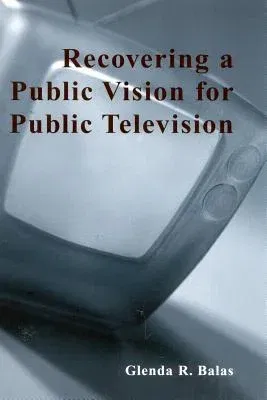Glenda R Balas
(Author)Recovering a Public Vision for Public TelevisionHardcover, 4 March 2003

Qty
1
Turbo
Ships in 2 - 3 days
In Stock
Free Delivery
Cash on Delivery
15 Days
Free Returns
Secure Checkout

Part of Series
Critical Media Studies: Institutions, Politics, and Culture
Part of Series
Critical Media Studies (Hardcover)
Print Length
168 pages
Language
English
Publisher
Rowman & Littlefield Publishers
Date Published
4 Mar 2003
ISBN-10
0742523861
ISBN-13
9780742523869
Description
Product Details
Author:
Book Format:
Hardcover
Country of Origin:
US
Date Published:
4 March 2003
Dimensions:
24.08 x
16.15 x
1.93 cm
ISBN-10:
0742523861
ISBN-13:
9780742523869
Language:
English
Location:
Lanham, MD
Pages:
168
Publisher:
Series:
Weight:
362.87 gm